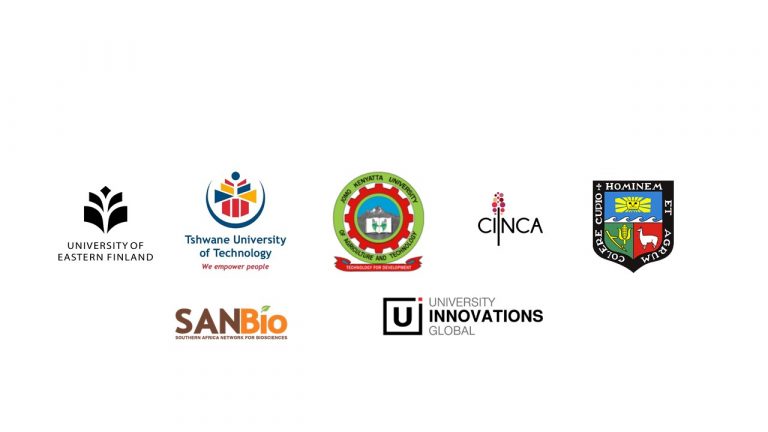- the University of Eastern Finland,
- the Centre of Innovation for Andean
Grains at the Universidad Nacional Agraria La Molina - Tshwane University of Technology
- Jomo Kenyatta University of Agriculture and Technology
- UI Global
- Southern Africa Network for Biosciences.
Food innovators told their stories on food innovation and share their experiences south-south.
Bring Your Own Food Product: 18th November 2021
Innovative Gastronomy: 24th November 2021
Bring Your Own Food Product: 18th November 2021
Innovative Gastronomy: 24th November 2021
- Harnessing the Potential of Baobab
- Nutritive Noodles with Andean grains
- Cowpeas as a Future Global food
Related:
Indigenous Peoples have voiced concerns over using western IPRs that are designed to protect private ownership rights to protect Indigenous knowledge and foods, as this goes against their culture and values and is likely to accelerate the erosion of this heritage. In some cases, ‘soft’ IPRs such as collective trademarks, may be useful/appropriate for protecting the collective heritage of Indigenous peoples.
Indigenous peoples have called for the development of alternative ‘sui generis’ IPRs that are tailored to the unique character of their knowledge and food systems, and protect these holistically, including their connections with biodiversity, land and culture. They have also called for branding and labelling schemes that are specifically designed for Indigenous biocultural heritage-based products.
For more information, see:
Dutfield, G. (2011) Intellectual property tools for products based on biocultural heritage IIED #44 pp.
For more information, see:
Dutfield, G. (2011) Intellectual property tools for products based on biocultural heritage IIED #44 pp.
Products developed by indigenous peoples and traditional societies, such as food crops and medicines, can protect biodiversity and provide an important source of income. This review explores the intellectual property (IP) tools of geographical indications, trademarks and rules of unfair competition for promoting these products, and protecting them from misappropriation, misuses and imitation, and assesses their potential to contribute to sustainable development.
Argumedo, A. (2013) Collective trademarks and biocultural heritage: towards new indications of distinction for indigenous peoples in the Potato Park, Peru IIED #40 pp.
The indigenous farmers of the Potato Park in Cusco, Peru, produce goods drawn from their collective traditional knowledge, biodiversity and fundamental ties to the land: their ‘biocultural heritage’. How can they promote these products, while also protecting their collective intellectual property?
Swiderska, K., Argumedo, A. and Dutfield, G. (2019) Building a global biocultural brand to support indigenous landscapes IIED #4 pp.
Brief to develop a global brand for biocultural products and services, supported by indigenous labelling and certification. The labelling system should be designed and managed by indigenous peoples and easily accessible to them, with some independent verification to provide a guarantee of quality and authenticity for consumers.
Dutfield, G., Argumedo, A. and Swiderska, K. (2015). Designing an effective biocultural heritage indication labelling system. Consultation document IIED #26 pp.
Biocultural heritage is crucial to many indigenous peoples’ livelihoods, identities and self-esteem. Products and services based on biocultural heritage – such as traditional foods and drinks, personal care products, crafts and guided tours – can provide a source of income for indigenous people, while promoting incentives to sustain biocultural heritage.
- Tourists and local people with disposal income are often willing to pay a premium for high quality local products provided they carry a guarantee of origin and authenticity.
- But such guarantees are often lacking. While labelling and certification schemes exist for ecological and fair trade products, it seems that there is no such scheme that specifically seeks to protect biological and cultural diversity.
- Some existing intellectual property tools such as collective trademarks and geographical indications could be used to protect collective rights over biocultural products, but they are largely inaccessible to indigenous peoples as registration procedures are bureaucratic, designed for businesses, and they can be costly and difficult to enforce. Furthermore, they focus strongly on promoting trade, rather than protecting biocultural diversity.







No comments:
Post a Comment